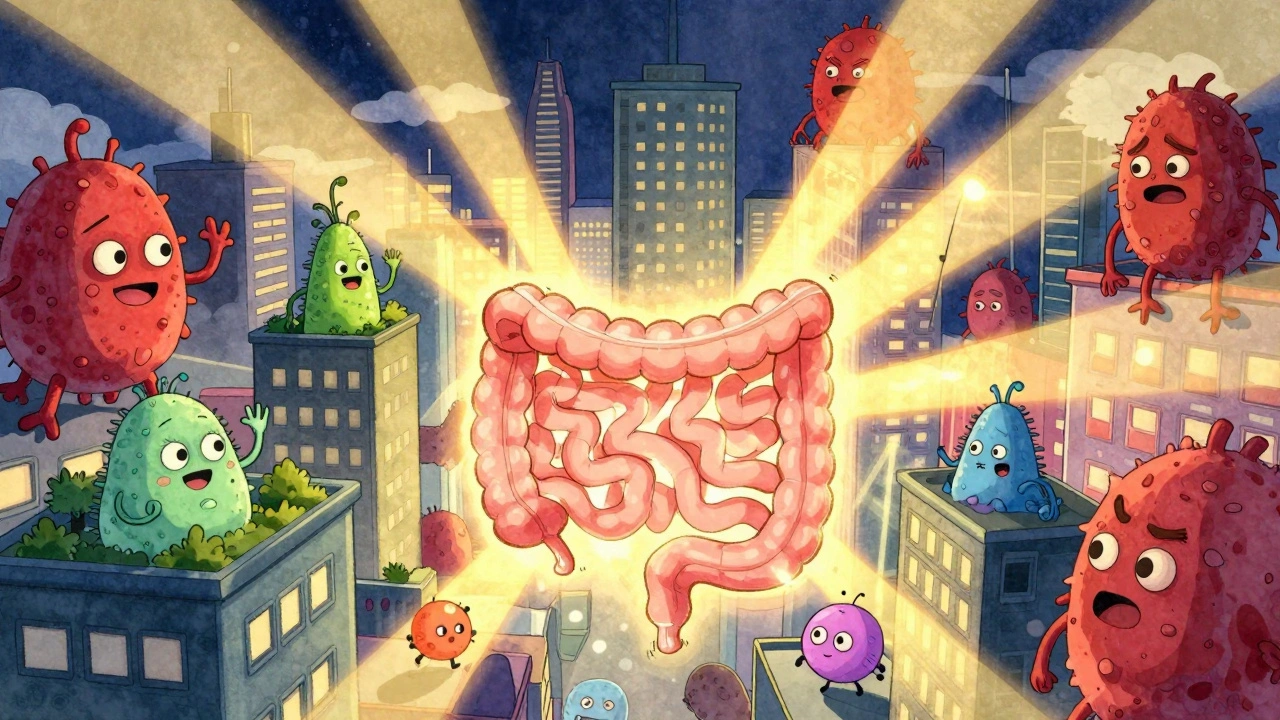If you’ve heard the phrase “gut microbiome” but aren’t sure what it really means, you’re not alone. Think of your digestive tract as a bustling city filled with trillions of tiny residents – bacteria, fungi, and other microbes. These microscopic neighbors help break down food, train your immune system, and even send signals to your brain. In short, they’re a big part of why you feel good (or bad) after a meal.
The gut microbiome is the collection of all the microorganisms living in your intestines. It’s not just one species; it’s a whole ecosystem that changes with age, diet, stress, and medication use. When the mix stays balanced, you get smooth digestion, steady mood, and strong immunity. But toss in a lot of antibiotics or eat a junk‑food-heavy diet, and the balance can tip, leading to bloating, cravings, or even longer‑term health issues.
Many people don’t realize that prescription drugs can act like a bulldozer on gut microbes. Broad‑spectrum antibiotics wipe out both bad and good bacteria, often leaving a gap that opportunistic bugs love to fill. Even non‑antibiotic meds – such as proton pump inhibitors or certain pain relievers – have been shown to shift the microbial balance. That’s why doctors sometimes recommend probiotics after a course of antibiotics: they help reseed the friendly strains faster.
Probiotics are live bacteria you can take in capsules, yogurts, or fermented foods like kimchi. They’re not a magic fix, but when chosen wisely (look for strains backed by research, such as Lactobacillus rhamnosus GG or Bifidobacterium longum), they can reduce diarrhea and improve overall gut comfort.
Beyond pills, what you eat matters just as much. Fiber‑rich foods – whole grains, beans, veggies, fruits – feed the good bacteria, turning them into short‑chain fatty acids that protect your gut lining. On the flip side, sugary drinks and processed snacks starve those microbes, letting less friendly species take over.
Stress and sleep also play a role. When you’re under chronic stress, cortisol can alter gut motility and make it harder for beneficial bacteria to thrive. Prioritizing regular sleep patterns and simple relaxation techniques helps keep the microbial community stable.
So, what practical steps can you take today?
Remember, your gut microbiome isn’t static. It reacts to what you put in it every day. By feeding the good guys, limiting unnecessary meds, and giving your body a break from stress, you give yourself a solid foundation for better digestion, clearer skin, steadier mood, and stronger immunity.
Keep an eye on how your body feels after making small changes. If you notice less bloating, more regular bathroom trips, or even improved energy, those are signs the microbial balance is shifting in the right direction. And if you ever have serious gut concerns, a gastroenterologist can run tests to see which bacteria might need extra help.
Bottom line: your gut microbiome is a living system that loves diversity and hates disruption. Treat it like you would any other part of your health – with thoughtful food choices, smart medication use, and a bit of patience – and you’ll likely notice the benefits ripple through many areas of your life.

New research shows gut bacteria can trigger autoimmune diseases like lupus and rheumatoid arthritis. Discover how microbiome imbalances cause immune attacks-and what new therapies are emerging to target them.
View more
In my latest research, I discovered a fascinating connection between proctitis, an inflammation of the rectum, and the gut microbiome. It turns out that an imbalance in our gut bacteria can contribute to the development of proctitis. By maintaining a healthy and diverse gut microbiome, we may be able to prevent or alleviate the symptoms of proctitis. To promote a healthy gut, we should focus on consuming a balanced diet, rich in fiber and probiotics. By understanding this connection, we can better manage our overall health and well-being.
View more